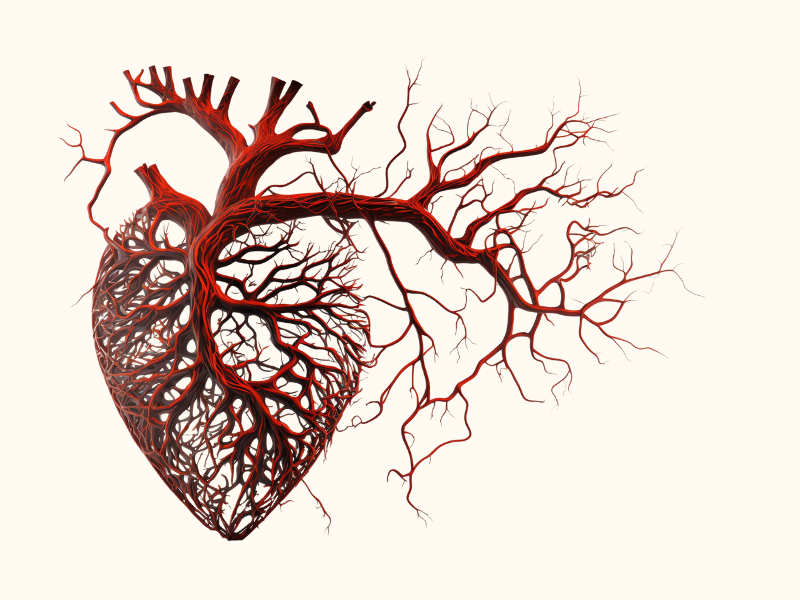08/10/2021
Boost your immune system for the cold season

The immune system is arguably the most sophisticated part of the human body, outside of the brain. (1) All through the year it is exposed to many foregn invaders daily, and when the winter comes the system gets increasingly exposed.
As the immune system is your first and last defense against invaders, it is a good idea to put in an extra effort to ready it for the cold season.
If your immune response is well-prepared, you will be less likely to be infected by the invaders that you encounter daily. Discover how to help maintain this important protective body system.
The two-pronged cold season strategy
A two-pronged immune system strategy can make you well-prepared for the cold season.
Step 1 is a preventive step, where you fortify your immune defenses. Step 2 is a reactive step, where you take additional supplementation to help knock down the invaders before they can take hold.
STEP 1 — PREPARE YOUR IMMUNE SYSTEM
Vitamin C is great when it comes to fortifying and preparing your immune system. It helps to activate both immune cells that can consume and destroy invading organisms and cells that recruit, organize and direct other immune cells.
Read more about why vitamin C is good for you here.
Vitamin D helps to dismiss an invasion by readying the body’s innate immune system. The innate immune system is the body’s first line of immune defense, responsible for generating the initial reaction to health threats. (1) This is the part of the system which deals with “emergency responses”.
Scientists report that the strength of your immune system—at least 70% of which is located in your gut—relies on the makeup of your intestinal bacteria. (2,3)
Probiotics can restore your body’s natural, intestine-based protection against a host of non-intestinal diseases and shield you from the diseases of aging. (4-10)
Over time, an imbalance in the ratio of good-to-bad bacteria activates these many detectors in negative ways that can trigger the development of a host of diseases in many areas of the body—not just those associated with the gut.
Fortunately, probiotic supplements can restore a healthy balance to gut bacteria and reverse these disruptions to intestine-based signaling mechanisms. This, in turn, reverses the negative influence that triggers the development of chronic disease. (11)
A potent probiotic where you need it most: FLORASSIST® Balance
Probiotics for immune balance during seasonal environmental changes: FLORASSIST® Immune & Nasal Defense
STEP 2 — TAKE ACTION WHEN COLD SYMPTOMS ARISE
Should certain microbes slip undetected past your immune system anyways, it’s important to be ready with a proper “emergency response”.
For instance, zinc ions released from a special zinc compound can attach themselves to the same cell receptors in the sinuses and throat that certain types of common cold viruses use.
This helps to prevent them from getting a foothold in the body and helps knock down an invasion in its tracks.
Read more about zinc and immune health here.
Some plants naturally have antimicrobal properties. One such is garlic, which is known for its support for healthy immune function.
Fast-acting liposomal immune boosters
Find quality products with liposomal delivery. The liposomes in these products are so small that they begin absorbing as soon as they hit the mouth, which means better, faster results:
- Support the body’s own master antioxidant switch and assist the body’s ability to break down histamine: Nanoemulsified Hista-Aid™
- Help fortify the body’s natural immune defenses: Vitamin C+ Elderberry OOS
- Fast acting zinc-based immune support: Immune Charge+™ Throat Spray
- Promote and support detoxification pathways throughout the entire body: Liposomal Vitamin C with R-Lipoic Acid
Find all our immune supporting supplements here.
E-book on immune health
Download the e-book "The Immune System - Your line of defense" here.
References
1. https://www.quicksilverscientific.com/blog/understanding-immune-health-whats-in-your-hands/
2. Furness JB, Kunze WA, Clerc N. Nutrient tasting and signaling mechanisms in the gut. II. The intestine as a sensory organ: neural, endocrine, and immune responses. Am U Physiol. Nov 1999;277(5 Pt 1):G922-8.
3. Khosravi A, Yanez A, Price JG, Chow A, Merad M, Goodridge HS, Mazmanian SK. Gut microbiota promote hematopoiesis to control bacterial infection. Cell Host Microbe. Mar 12 2014;15(3):374-81.
4. Vyas U, Ranganathan N. Probiotics, prebiotics, and synbiotics: gut and beyond. Gastroenterol Res Pract. 2012;2012:872716.
5. Cox LM, Blaser MJ. Pathways in microbe-induced obesity. Cell Metab. 2013 Jun 4;17(6):883-94.
6. Li DY, Yang M, Edwards S, Ye SQ. Nonalcoholic fatty liver disease: for better or worse, blame the gut microbiota? JPEN J Parenter Enteral Nutr. 2013 Nov;37(6):787-93.
7. Everard A, Cani PD. Diabetes, obesity and gut microbiota. Best Pract Res Clin Gastroenterol. 2013 Feb;27(1):73-83.
8. Mortaz E, Adcock IM, Folkerts G, Barnes PJ, Paul Vos A, Garssen J. Probiotics in the management of lung diseases. Mediators Inflamm. 2013;2013:751068.
9. Turnbaugh PJ, Ridaura VK, Faith JJ, Rey FE, Knight R, Gordon JI. The effect of diet on the human gut microbiome: a metagenomic analysis in humanized gnotobiotic mice. Sci Transl Med. 2009 Nov 11;1(6):6ra14.
10. DiBaise JK, Zhang H, Crowell MD, Krajmalnik-Brown R, Decker GA, Rittmann BE. Gut microbiota and its possible relationship with obesity. Mayo Clin Proc. 2008 Apr;83(4):460-9.
11. Esposito E, Iacono A, Bianco G, et al. Probiotics reduce the inflammatory response induced by a high-fat diet in the liver of young rats. J Nutr. 2009 May;139(5):905-11.
Other blog topics
- Vitamin D’s winter immune benefits
- NAD+: Stem cell renewal & mitochondria regeneration
- Fight your fatigue with french oak wood
- Mood: Vitamin D and omega-3 increase serotonin/
- Brain: Support your memory and ability to concentrate
- Health basic — start your journey here
- Pink ribbon — how to boost breast health
- How to lower your cholesterol
- Why vitamin C is good for you
- Improve endurance exercise performance and recovery
- A healthy prostate
- Could you use a little more energy?
- Zinc — boost your immune health






